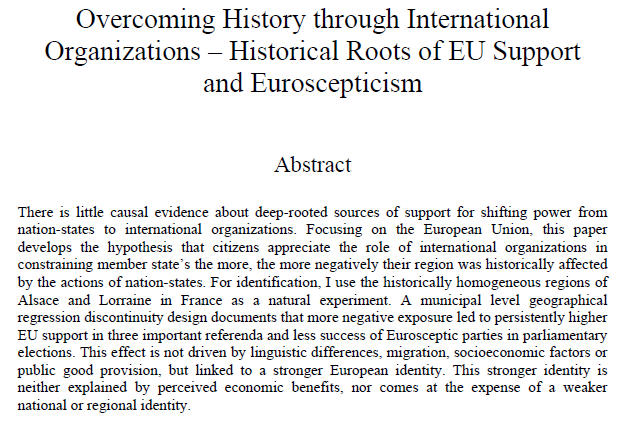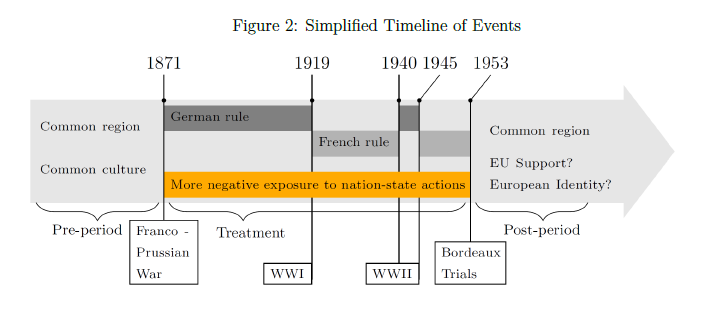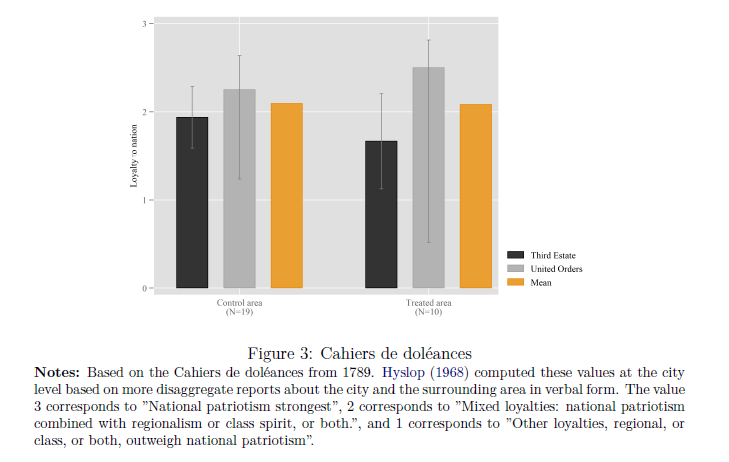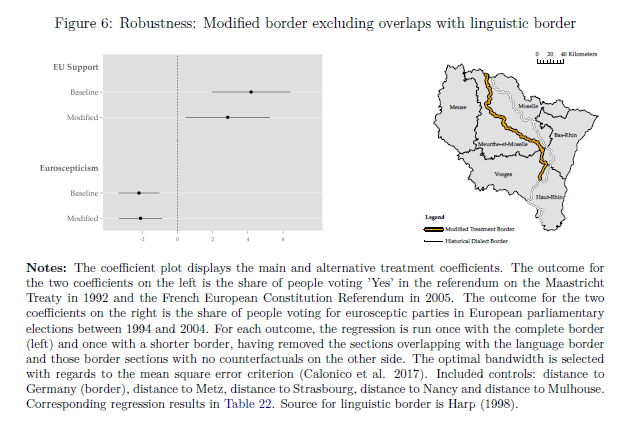-Leasds to stronger EU support, less Eurosceptism
-Socio-economics factors can't explain change
-EU identity became stronger, not caused by economic benefits
papers.ssrn.com/sol3/papers.cf…

like Scotland, South Tyrole, Catalonia, the Basque country show high EU support.
Tensions can stem from changing nation-status after wars or generally repressive policies against region.
- Very important for allocation of decision-making competences, #fiscalfederalism
- Consequences of repressive policies, e.g. Uighurs in China or Kurds in Turkey
- Helps to understand regions with separatist tendencies
you might find this intersting I hope :)













